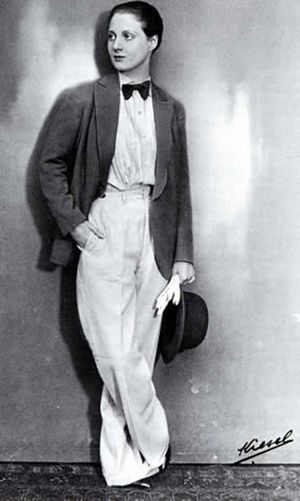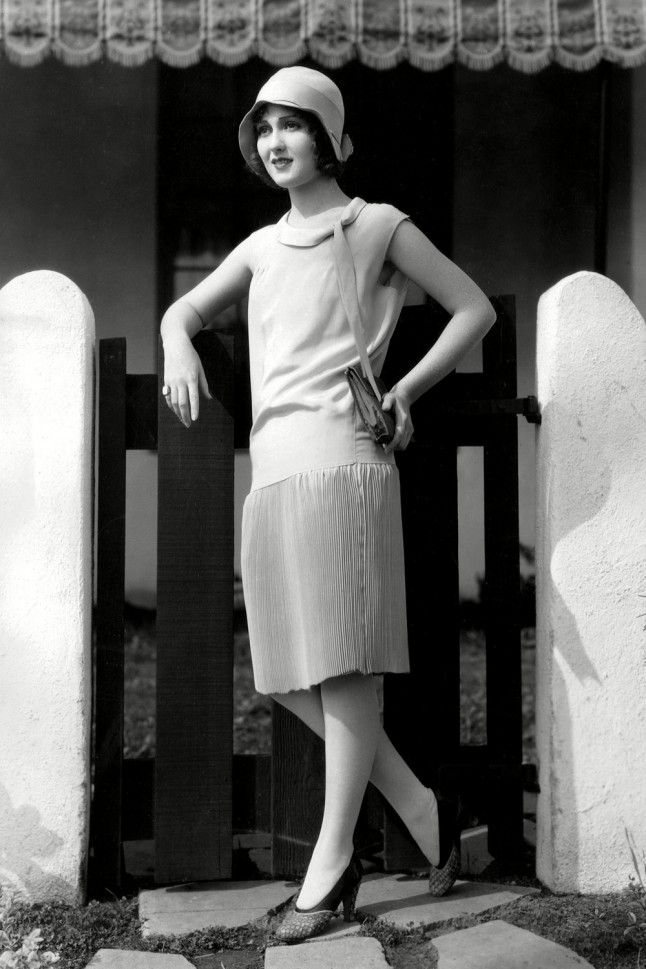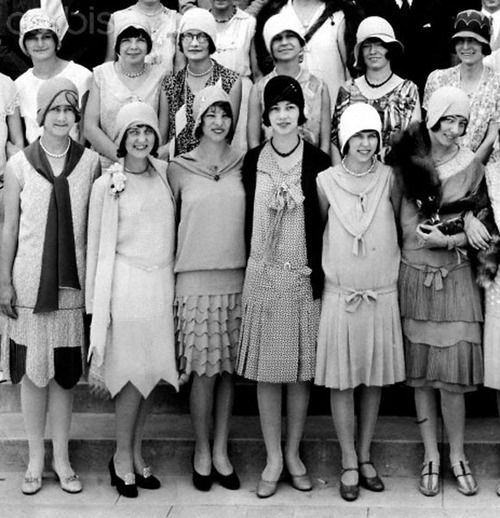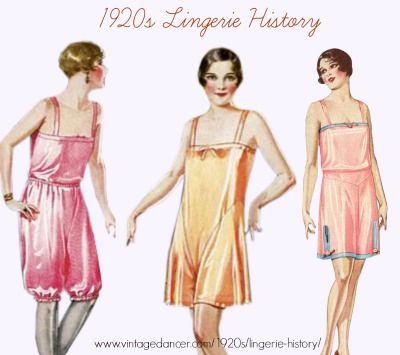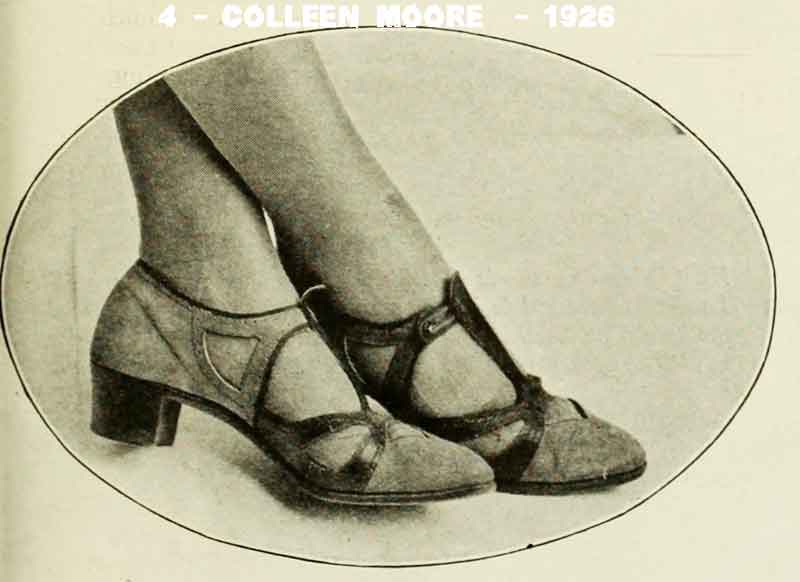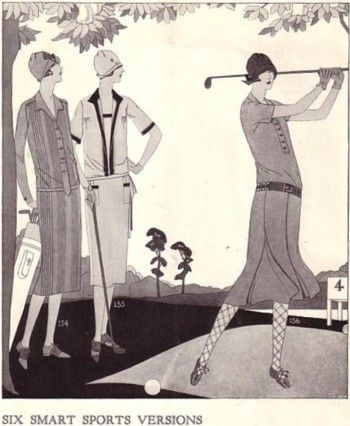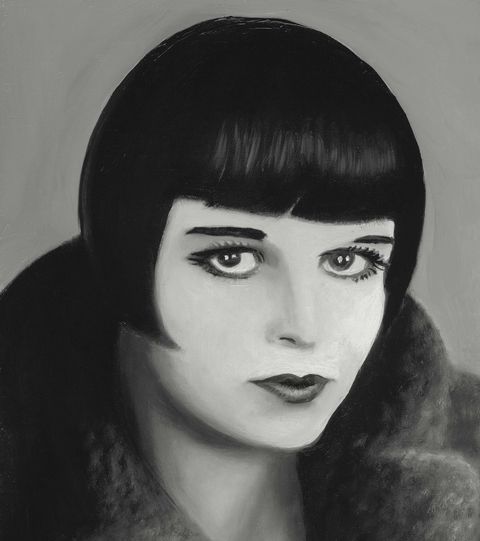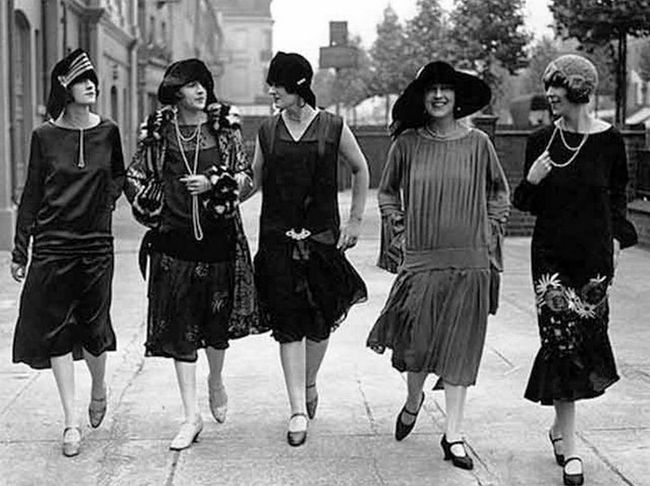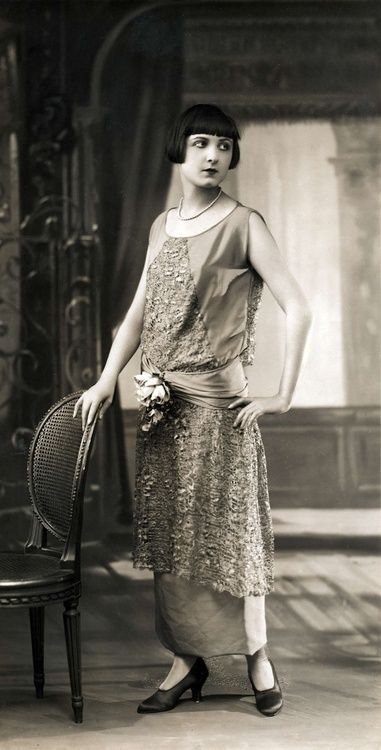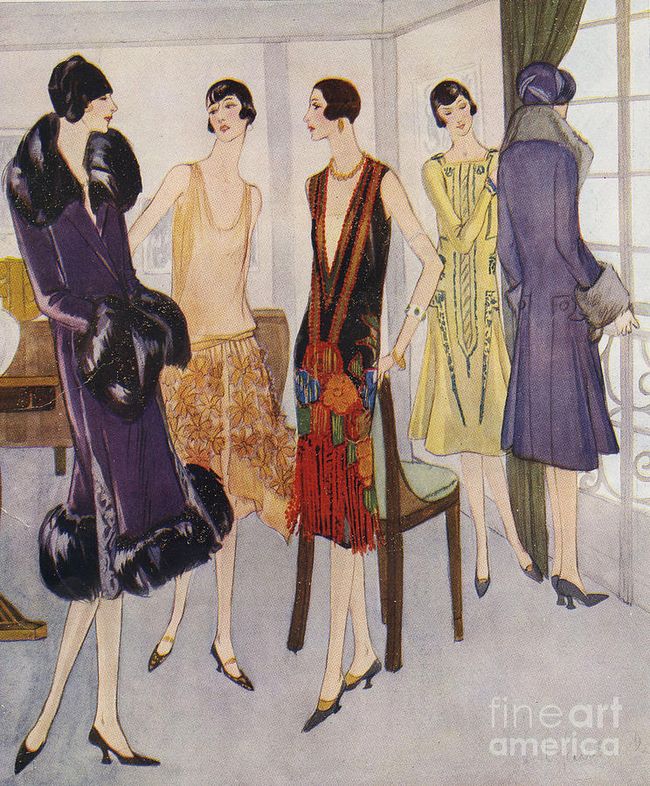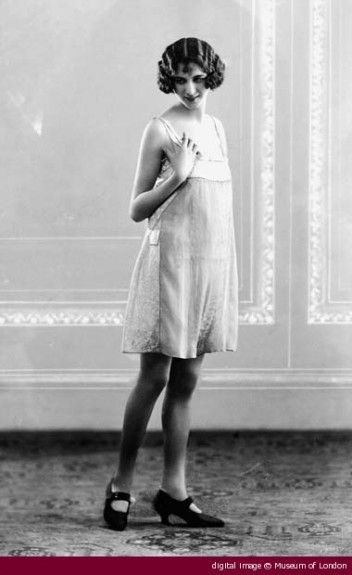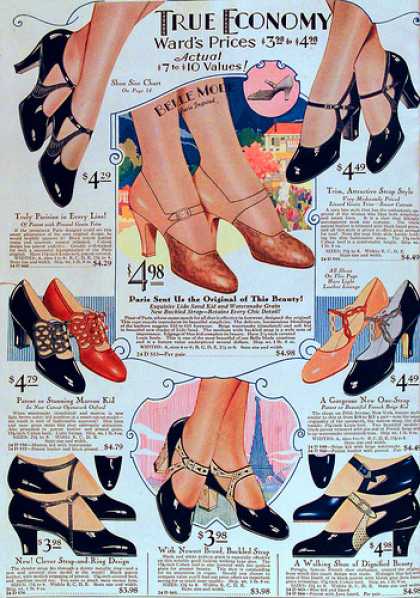1920 -1929
RISING HEMS
Victor Margueritte’s scandalous novel La Garconne, published in 1922, describes the transformation of a young woman into the “tomboy” of the title.
The androgynous, youthful look came to represent the decade, though not every woman could carry it off.
Thankfully there were several styles to choose from, as long as they had a low waist.
Hemlines rose and dropped at least twice, skirts being at their shortest around 1927.
The gowns’ straight silhouettes were often broken up or emphasized by geometric decoration, and different colors could be used for the top and bottom halves.
Fuller skirts remained in fashion, becoming more prominent when hemlines were lower.
The tight, bell-shaped cloche hat with its diminishing brim became universally popular and indicated that its wearer’s hair had been cut fashionably short, but hats with wide brims also remained in vogue.
LINGERIE
While women could choose from a bewildering array of undergarments, they all served one purpose: to reduce or entirely remove any curves that even vigorous dieting could not eliminate.
Brassieres had been introduced the previous decade but now shrank into a flattening band.
Underpants remained large and could also be attached to camisoles.
Artificial or real silk, crepe de Chine, and georgette in pink, peach, apricot, or brighter colors such as cyclamen(pink) replaced white cotton.
SHOES
Strapped shoes had been worn in the previous decade but became one of the defining trademarks of the 1920s.
Women could choose between tie shoes closed with a bow, shoes with single or multiple buckled straps, or so-called sandals with t-straps.
Strapless pumps and dress shoes remained in vogue including the Cromwelll, which had a high tongue reminiscent of 17th-century footwear.
1920 -1929
下摆提升
维克多 马格力特(Victor Marguerite) 于1922年发表小说《拉加康内》La Garconne,描述了一名年轻女子转变成为“假小子”的故事。
这接下来青春洋溢,雌雄同体的十年,尽管不是每个女性都能承担它。
但值得感谢的是,仍然有几种风格可以供她们选择,只要她们都拥有低腰线。
下摆线上升下降至少两次,裙摆在1927年左右到达最短。
礼服的直线轮廓经常被打破或者以几何装饰方式来强调,不同的颜色可以分别用与服装的上半身与下半身。
更长一些的裙子仍旧是时髦的,当下摆线普遍较低时这种情况更加突出。
贴紧的钟型Cloche帽从小众慢慢成为时髦款式,表明佩戴者的头发都变成时髦的短发,这时的宽边帽也仍在流行。
女士内衣
纵使女性可以从一系列形式各异的内衣中作选择,但她们的目的都只有一个:降低或彻底消除纵使严格节食也无法达到的曲线标准。
胸罩braassieres在之前十年被引入,但现在收缩到一种扁平状态。
内裤仍然宽松,并且可以附加背心一起穿着。
人造丝或真丝,中国绉纱,粉色,桃色,杏色乔其纱,甚至更亮丽的颜色如仙客来粉代替棉白色。
鞋履
绑带鞋已经流行了10年,但到了二十世纪20年代仍旧成为时尚的标志之一。
女士们可以选择弯腰扣上鞋带,有单根或者多根,甚至还有T型带的凉鞋。
无搭扣的船鞋与礼服鞋仍然时髦,穿着者包括克伦威尔,它有很高的鞋舌让人想起十七世纪的鞋履。
